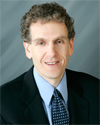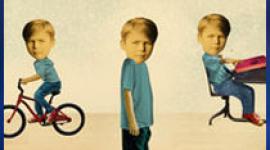Adult ADHD Diagnosis and Treatment

|
Dr. Lenard Adler, our guest, is the author of the book Scattered Minds: Hope and Help for Adults with Attention Deficit Hyperactivity Disorder. The transcript covers the diagnosis and treatment of Adult ADHD. Natalie is the HealthyPlace.com moderator. The people in blue are audience members. |
Conference Transcript
Natalie: Good evening. I'm Natalie, your moderator for tonight's ADHD chat conference. I want to welcome everyone to the HealthyPlace.com website. Our social network is fairly new in the Internet, but already we have several thousand people who have signed up. A social network is a place for people with mental health conditions as well as their family members and friends to meet each other, maintain blogs and provide and get support, and it's free to join.
Tonight, we are going to discuss the diagnosis of Adult ADHD first because, without an accurate and proper diagnosis, one can't get the right treatment.
Our guest is Dr. Lenard Adler, director of the Adult ADHD Program at New York University Medical Center and author of Scattered Minds: Hope and Help for Adults with Attention Deficit Hyperactivity Disorder.
Good Evening, Dr. Adler, and thank you for joining us tonight.
Dr. Adler: I'm happy to be joining you.
Natalie: I am constantly seeing news stories and studies about "undiagnosed ADHD in adults." I think most parents today are familiar with ADHD in children. Is it different for adult ADHD?
Dr. Adler: ADHD used to be thought of as a disorder primarily affecting children; we now know that about 2/3 children with ADHD go on to be adults with ADHD. This means that about 4.4% of the US adult population or 8 million individuals have ADHD.
Natalie: For adults with ADHD, do the first symptoms usually appear during childhood or is this something that can pop up during adulthood?
Dr. Adler: There must be a childhood onset of symptoms, but you don't need to meet full criteria or be diagnosed in childhood. There can be an adult presentation of ADHD, but to meet full criteria, not adult onset.
Natalie: Are the symptoms of ADHD in adults different from those in children?
Dr. Adler: The symptoms are similar, but individuals must be aware of how symptoms change from childhood to adulthood. The inattentive symptoms of trouble with distraction, trouble paying attention, trouble completing tasks, etc. are more prominent for adults than the hyperactive-impulsive symptoms. Also, adults tend to try to cope with their symptoms and this needs to be kept in mind.
Natalie: Here's a link to symptoms of ADHD in adults. But in your book "Scattered Minds," you mention some "hidden warning signs of adult ADHD". Could you please go over those?
Dr. Adler: There are a number of warning signs- which are some of the impairments from the condition- underperformance on the job, multiple motor vehicle accidents, higher rates of divorce, smoking cigarettes and if the ADHD is not treated, substance use.
Natalie: Accurate diagnosis of childhood ADHD is a problem because some of the symptoms cross over several disorders, like bipolar disorder or conduct disorder. Does the same hold true for diagnosing adults with ADHD? Or is it because they are adults, the symptoms and the ability of the patient to accurately communicate the symptoms, makes diagnosis easier?
Dr. Adler: These co-occurring conditions are important for adults too- adults with ADHD have higher rates of co-occurring bipolar disorder, depression and anxiety disorders. The ability for adults to present a longitudinal history is critical as ADHD symptoms tend to persist, while the symptoms of mood disorders are often episodic.
Natalie: If I think I have adult ADHD, which type of professional is the best for me to see about diagnosis issues? And what about ADHD treatment?
Dr. Adler: Although there is a screening test (self-administered) to identify individuals at risk for ADHD, the diagnostic evaluation requires sitting down with a health care professional and taking a history. 4 criteria need to be met to make the diagnosis: symptoms, impairments, childhood onset and being certain that the symptoms are from ADHD and not another mental health disorder. The diagnosis is a clinical one and there is not a blood test or brain scan that can make the diagnosis. The diagnosis is usually made by a psychiatrist, psychologist, neurologist or primary care physician.
Natalie: Do you think a family doctor, in general, can do a good job of diagnosing adult ADHD?
Dr. Adler: It depends on whether the PCP is adequately trained or not.
Natalie: Sometimes people go to see a doctor or therapist and say "I can't concentrate, always feel fidgety, and I've felt this way for a long time." After that sentence, the doctor is writing a prescription for an ADHD medication. So when I see a professional for an ADHD diagnosis, what kind of diagnostic tests/interviews should I expect so I know this person is doing a thorough and competent job?
Dr. Adler: There is no substitute for taking a comprehensive history, which reviews life long symptoms and impairments. Again to make the diagnosis of ADHD the above 4 criteria need to be met. Rating scales, be they diagnostic or symptom assessment, can often be quite helpful in establishing the symptom onset, chronicity, and impairments.
Natalie: Here's an audience question Dr. Adler.
missyred: How often is ADHD misdiagnosed in adults? What is it mistaken for instead?
Dr. Adler: ADHD can be misdiagnosed or not diagnosed in adults. A recent community-based survey (the National Comorbidity Survey) found that only 10% of the adults with ADHD had seen and received treatment for their ADHD in the last year. Estimates are that only about 1/4 adults with ADHD are treated. Sometimes the co-occurring conditions- bipolar disorder, major depression, anxiety disorders or substance use disorders are identified, but the ADHD is missed.
Natalie: Let's start with some treatment issues, then we'll get to more audience questions in a few minutes.
So, let's say I have been diagnosed with ADHD. How is it determined what treatment is best for me?
Dr. Adler: The treatment plan should be established in partnership with your physician. Since we know that ADHD is a neurobiological disorder, medications, be they stimulant or non-stimulant medications play primary roles. Cognitive behavioral therapy or coaching can also be quite helpful.
Natalie: The treatments for adult ADHD available today consist of medications (stimulants like Ritalin, Adderall, Concerta and non-stimulant ADHD drug, Strattera) along with therapy. For major depression, medications PLUS therapy is the gold standard of treatment. Is that true for treating adult ADHD?
Dr. Adler: Medications are used to treat the symptoms and cognitive behavioral therapy (CBT) is used to make change. This is an evolving area in terms of research, but data from Mass General Hospital seem to indicate that CBT is most helpful as an adjunct to Rx.
Natalie: A lot of people don't want to take medication. How does a doctor determine that a person needs medication for ADHD?
Dr. Adler: It is a personal decision to take medication. As ADHD is a lifetime disorder it is often difficult to treat without medication. Some individuals will decide to pursue this course of action and medication could be introduced at a later time if desired.
Natalie: What is the best one can hope for from their ADHD medication? And what would be a reasonable expectation?
Dr. Adler: About 70% of children and adults will respond to the first medication they take and only about 15% of individuals are non-responsive to medications. The medications are not cures, but they do provide significant symptom relief. It is important to set reasonable expectations about what medication can and cannot provide. Also, for non-stimulant medication, it is important to wait for the medication effect.
Natalie: And so "reasonable expectations" for the performance of the medication would be what?
Dr. Adler: Improvement in clinical trials means at least a 30% reduction in ADHD symptoms. However, one might expect a more significant reduction in their own treatment. It is not only the improvement of symptoms, but the reduction of impairment that is important.
Natalie: I know that for antidepressants and antipsychotics, patients typically have to try several, and maybe even try a combination of medications, before they get desirable results. Does the same hold true for ADHD medications?
Dr. Adler: It is always important to start with one ADHD medication. Sometimes a combination of ADHD medications, be it long and short-acting stimulants or stimulants and non-stimulants are used. You should start with one medication though and try to optimize the dose to maximize response.
Natalie: And are there some adults with ADHD who are treatment-resistant; meaning currently existing medications just won't work for them?
Dr. Adler: Only a small percentage of ADHD adults are medication non-responsive, about 15%. There are good treatments available and my message is to keep trying. Sometimes it requires a combination of medications or adjusting the dose and time of administration.
Natalie: Let's get to some audience questions, Dr. Adler. Here's the first one:
missyred: I would imagine hobbies and crafts that are detailed in the making would be hard for anyone with ADHD, what other activities could be helpful?
Dr. Adler: It is important to have structure to your day. Regular exercise can be helpful. Things that tend to help deal with anxiety can also help, like yoga if you can do it.
missyred: At what age in adulthood would this become noticeable, or does it just follow from childhood into adulthood with frustrations and inabilities to complete tasks and projects.
Dr. Adler: The age of presentation in adulthood varies. In our program, the average age of people presenting for evaluations is in the mid-30s. One key point is that some significant symptoms have been present from childhood. A variety of things can bring an individual in for an evaluation. One of the most common is that since ADHD tends to run in families, that a parent has had a child recently diagnosed with ADHD.
Natalie: Here are a few audience comments. Then we'll get to the next question.
danielle7263: I've had ADHD since I was very young.
Phylo3839: Adults? I was diagnosed as a senior!
annieandall: You mentioned coaching as treatment, what is that?
Dr. Adler: ADHD coaching is a form of behavioral therapy which involves a life coach, who helps provide advice regarding organization and planning. There is a professional coaches association or the support group CHADD can help provide information about local coaches.
beki: I had a child that was diagnosed with ADHD and he seems to have outgrown it. Is it possible that they outgrow it?
Dr. Adler: Yes, it is possible to have the symptoms remit, but this happens in about only 1/3 children.
LoveJoLu: What about the patch for adults?
Dr. Adler: A methylphenidate (which is the chemical name for Ritalin) patch recently became available. It is marketed as Daytrana. It can provide treatment throughout the day and it is important to take the patch off several hours before bedtime.
Natalie: I know the ADHD patch is used for kids. Does it work for ADHD adults too?
Dr. Adler: The patch is marketed for children with ADHD. There is not currently any data in adults so the use in adults would be off-label.
Natalie: Meaning some doctors are prescribing it for adults. The patch is just not FDA approved for adults at this time.
I realize you're a medical doctor and medical doctors typically turn to recognized therapies like prescription medication, but what are your thoughts about "alternative remedies" for ADHD like herbs or nutritional supplements?
Dr. Adler: Alternative therapies have been investigated for ADHD and I do review some of them in Scattered Minds. When pursuing nutritional supplements, it is important to realize that these treatments have not undergone research with scientific rigor as the medications have. If you are planning to take supplements to treat your ADHD, please review this with your physician.
Natalie: Does changing your diet in some way help relieve ADHD symptoms?
Dr. Adler: A balanced healthy diet is important, but restrictive diets have not been shown to help ADHD symptoms. Also, the concept of sugar intake making ADHD worse has also been debunked.
Natalie: Here's another audience question:
Notavailable(akaGG): I have adult ADHD but the hypo disorder, I can't seem to find information on that type. Can you tell me anything about that?
Dr. Adler: Do you mean that you have the primarily hyperactive-impulsive type, without inattentive symptoms?
Notavailable(akaGG): Yes.
Dr. Adler: This type of ADHD in adults is actually not all that common- probably only about 5% of adults have this type. The good news is that the type of symptoms (inattentive or hyperactive-impulsive) has generally not been shown to influence medication response.
Natalie: When it comes to treating adult ADHD, it sounds like you have to be in it for the long-haul. As director of the Adult ADHD Program at New York University Medical Center and a physician who specializes in adult ADHD who has seen probably hundreds of patients, how difficult is it for a patient to stick with treatment over the long-term?
Dr. Adler: Well, that is a question that I am commonly asked. Treatment should be initiated for a period of time sufficient to be certain that significant symptom reduction occurs. Most people take medications over the long term as ADHD is often lifelong. Sticking with a treatment plan is critical. It is easier to take medications once or twice a day and the good news is that the newer longer-acting stimulants and non-stimulants fit that bill.
LoveJoLu: So adults will have to take meds the rest of their lives for ADHD symptoms?
Dr. Adler: Not necessarily, the rest of your life is a very long time. The decision as to how long, should be carefully discussed with your physician, but some individuals do take medications long term.
Natalie: If a patient quits treatment for ADHD, what have you found to be the usual reasons?
Dr. Adler: ADHD patients stop treatment for a variety of reasons, it could be wanting to take a break from the medication and inadvertently stopping it or it could just be a planning problem and they forget their appt or to get their prescription renewed.
Natalie: And do you have any helpful insights into "how to hang in there" through the treatment process for the long-term?
Dr. Adler: ADHD is a disorder that can and should get better. Establish a treatment plan with your doctor that works for you.
Natalie: Our time is up tonight. Thank you, Dr. Adler, for being our guest, for sharing all this great ADHD information and for answering audience questions. His book is Scattered Minds: Hope and Help for Adults with Attention Deficit Hyperactivity Disorder. We appreciate you being here.
Dr. Adler: You are most welcome. Good luck to you all.
Natalie: Thank you, everybody, for coming. I hope you found the chat interesting and helpful.
Good night everyone.
Disclaimer: We are not recommending or endorsing any of the suggestions of our guest. In fact, we strongly encourage you to talk over any therapies, remedies or suggestions with your doctor BEFORE you implement them or make any changes in your treatment.
APA Reference
Gluck, S.
(2006, November 8). Adult ADHD Diagnosis and Treatment, HealthyPlace. Retrieved
on 2026, January 14 from https://www.healthyplace.com/adhd/transcripts/adult-adhd-diagnosis-and-treatment




